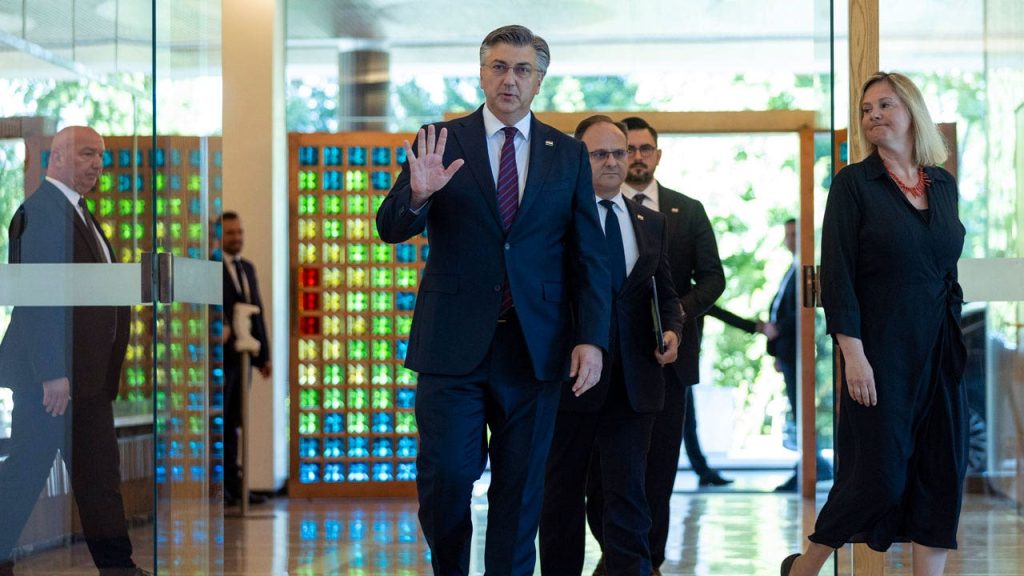Croatian conservative leader Andrej Plenkovic has been appointed prime minister-designate for a third consecutive term following an inconclusive election. His ruling Croatian Democratic Union party formed a coalition with the far-right Homeland Movement party to secure a parliamentary majority. This alliance marks a shift to the right for Croatia’s government, as the Homeland Movement is known for its radical nationalist and social conservative views. The new Cabinet is expected to push the country further to the right ahead of next month’s European election, amidst a backdrop of urgent issues including the war in Ukraine, climate emergencies, and migration.
The Homeland Movement, led by the hard-line mayor of Vukovar, is a relatively new political party in Croatia that emerged from disaffected members of the center-right HDZ. The party’s opposition to including a party representing minority Serbs in the government has sparked concern about ethnic tensions, as it marks the first time in years that the government will not have Serb representation. This exclusion of minority voices may contribute to tensions stemming from the conflict in the 1990s and raise questions about inclusivity and diversity within the Croatian government.
Despite the concerns raised by the exclusion of minority Serbs from the government, Plenkovic has expressed his commitment to continuing progress in his third term as prime minister. With a slim majority of 78 lawmakers in the 151-member assembly, his new government is expected to face political uncertainty. The approval of Plenkovic’s new Cabinet is set to take place next week, with the support of the Homeland Movement ensuring a parliamentary majority. The political landscape in Croatia is evolving in response to the shifting alliances and priorities of its major parties.
Croatia has largely been governed by HDZ since gaining independence, with the country joining the EU in 2013 and the eurozone last year. The forthcoming European election will provide a further opportunity for political parties to rally for support amidst a backdrop of significant challenges facing the continent. The conflict in Ukraine, climate change, and migration are just some of the urgent issues that Croatia and its European neighbors are grappling with. The formation of a right-leaning government in Croatia may have implications for the country’s stance on these pressing issues and its relationships with other European nations.
Plenkovic’s alliance with the Homeland Movement underscores the growing influence of far-right parties in Croatian politics and the broader shift towards conservative ideologies in Europe. The rise of radical nationalists and social conservatives within the Homeland Movement reflects a broader trend across the continent, with many countries seeing a resurgence of right-wing populism and nationalist sentiments. As Croatia navigates its role within the EU and responds to internal and external challenges, the composition and direction of its government will be closely scrutinized both domestically and internationally.
Overall, Plenkovic’s appointment as prime minister-designate for a third term signals a continuation of conservative leadership in Croatia. The alliance between HDZ and the Homeland Movement represents a significant shift in the country’s political landscape, with potential implications for ethnic relations, policy direction, and EU engagement. As Croatia heads into a new era under this coalition government, the country will face both opportunities and challenges in addressing the pressing issues of our time. It remains to be seen how this new government will navigate these complexities and chart a course for Croatia’s future.













